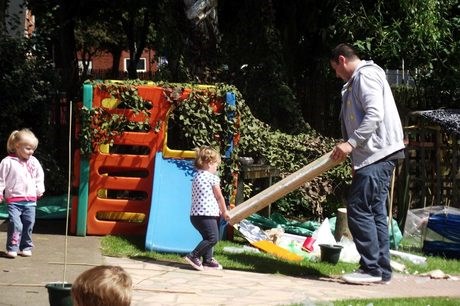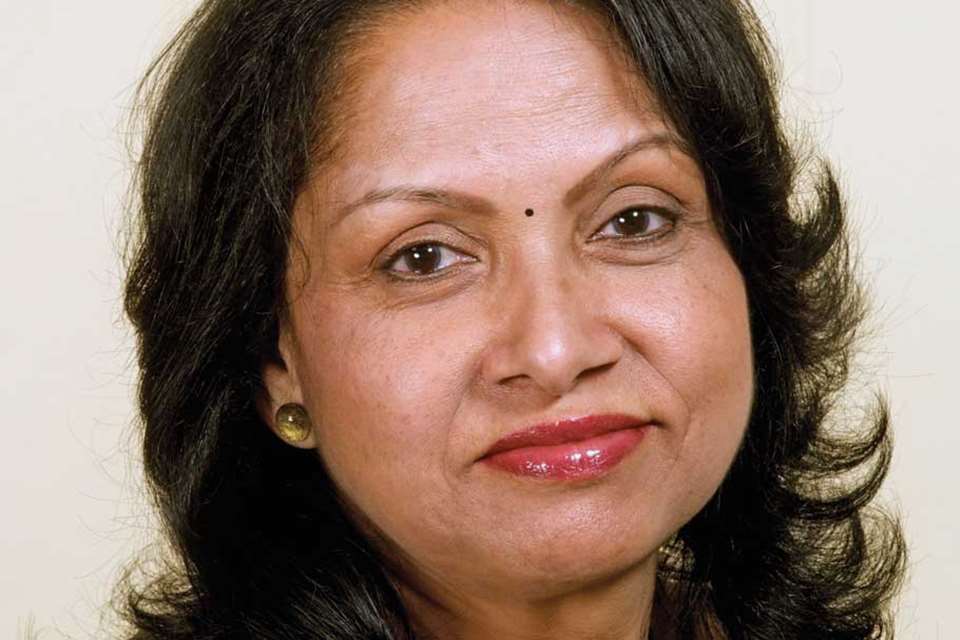Proposed SEND funds 'not enough', sector says
Nicole Weinstein
Monday, October 3, 2016
The sector has welcomed the Government’s recognition of the inequality of access to childcare for children with special educational needs and disabilities, but has questioned how far its proposed reforms will go.

Proposals outlined in the new early years national funding formula set out the intention to promote access and inclusion for children with SEND to childcare settings. As well as a dedicated Disability Access Fund of £12.5m for childcare providers, the DfE plans an SEN Inclusion Fund.
However, there is much debate about how far the Disability Access Fund will go towards helping children access specialist support in settings. There is further confusion about how cash-strapped local authorities will find the extra money to supplement the Inclusion Fund.
Representatives of the Levelling the Playing Field Campaign, a group of charities including the Council for Disabled Children and the Family and Childcare Trust, said the overall amount of funding is ‘still not enough to fund high-quality inclusive childcare’.
In a joint response, they said, ‘We are clear that high-quality provision for young children with SEND is dependent on both the quality of the provision in settings and what the local authority provides to supplement and complement this provision.’
Although the proposals seek to address pressures on providers, they do ‘little to address pressures on local authorities’, which has already led to the ‘erosion of early years support’ – for example, the reduction in Area SENCOs and specialist services – they added.
The organisations called for more clarification on how many three- and four-year-olds would be entitled to the Disability Access Fund. They also want the Government to increase the amount of funding in the High Needs Block; £1bn has been allocated to the Early Years Block, but the High Needs Block will not be increased.
The Pre-school Learning Alliance told Nursery World that early years funding for High Needs is controlled by schools forums, yet there is often ‘little or no representation’ on these for early years providers. It warned, ‘If the schools forum model continues to be used to distribute inclusion funding, it will need to be restructured to ensure there is larger representation of early years so such representatives feel able to get a fair hearing and equitable funding.’
DLA CRITERIA
There has been debate over plans to allocate funding to settings based on children in receipt of Disability Living Allowance.
‘The DLA being the criteria is not going to work for lots of children; in fact, for most of the population under five who have SEND, unless they have highly complex needs,’ warns Laura Brodie, head teacher of Allens Croft Children’s Centre. The maintained nursery school in Birmingham has 15 children with complex needs, including wheelchair use, Down’s syndrome and SEN, four are Reception-aged children whose needs are so profound that they have not been placed in mainstream schools.
Ms Brodie said it takes a year to go through the process of obtaining an Education, Health and Care Plan (EHCP), and for a child with autism, which is usually diagnosed at age three or four, the EHCP does not come through until they start school. ‘Without this,’ she added, ‘the child is very unlikely to get DLA.’
With regard to the funding, she said, ‘The current practice of local authorities providing Inclusion Support in Early Years (ISEY) funding to support children in all types of nurseries will most probably cease with the constant squeeze on council budgets.
‘The schools forum High Needs Block may continue, but it is usually only used once a child has an EHCP, so again will not help children access provision during the identification of
needs process, which most children with SEN in nurseries will go through.’
INCLUSIVE PRACTICE
There is also concern in the sector that limiting the funding criteria to children receiving DLA will disadvantage many children whose needs have not yet been identified. For example, children with a long-term language difficulty do not usually receive DLA or an EHCP.
A spokesperson for ICAN, the children’s communication charity, told Nursery World, ‘Many children, up to 50 per cent of children in some areas of deprivation, have delayed language skills which require effective and timely intervention. In order to support these children there are likely to be additional requirements on staff to undertake extra training; liaise closely with and pass on training and information to parents; be involved in discussions with appropriate professionals such as speech and language therapists; carry out additional focused speech and language activities; and share specialised knowledge across the team working in the setting. All of these requirements place an extra financial burden on early years settings, which may already be struggling to achieve their desired quality with the restricted funding available.’
The National Deaf Children’s Society said there are costs associated with being deaf that settings need extra funding to meet, regardless of whether or not a child receives DLA. ‘Nurseries are often loud, scary places for children with hearing aids. Funding to sound proof areas and deaf awareness training for staff goes a long way to helping deaf children feel comfortable in their surroundings.’
The charity has released a statement saying that the Government has ‘massively underestimated’ how many children would need the Disability Access Fund, and the proposed £12.5m amounts to just ‘1.25 per cent of the extra £1bn the Government says is needed for early years services – around 2p of the £4.88 average hourly rate councils offer nursery staff’.
It said this funding shortfall will be compounded by the extension of the free entitlement to 30 hours.
CASE STUDY: ALLEXTON DAY NURSERY (NW AWARDS 16 INCLUSIVE PRACTICE)

Children with a wide range of special – and profound - needs are supported at this Outstanding private day nursery, which operates from the West End Sure Start Children’s Centre in Leicester.
A child with spina-bifida, along with global development delay, macrocephaly, neuropathic bladder and constipation has been attending the nursery since he was five months old, starting in 2013.
Deputy manager Barbara Betts explains, ‘We worked with multi-agencies to give the child the best care possible, and her mother, a single parent, funded the child herself. There was also a language barrier so it was sometimes difficult explaining the childcare needs. When he got older, the care became more difficult because he reached a certain weight and could no longer be lifted by one person. Work had to be carried out with multi-agencies to ensure all health and care needs were met. Exercises and sign language were recommended.
‘Occupational therapists ordered hoist equipment; however, due to delays in equipment delivery, it was expected that two practitioners lifted the child for all transportation. There was no funding to cover extra staff at this time, as the funding only covered one-to-one support.
‘As the child grows up, his needs are becoming more profound and complex, leading to specialist training for hoisting, catheter training, manual handing, and sensory processing, all of which is funded by the nursery provision.
‘Children who have EHCPs, as this child does, automatically receive 15 hours of one-to-one funding. However, if the child attends extra hours, the nursery funds those hours. This child attends four days a week, from 8.30am to 3pm, but we only get funding for 15 hours a week. As a nursery we have put additional support in place to support the holistic development prior to any EHCP. The nursery isn’t reimbursed.
‘We receive some additional funding for Element 3 (from the High Needs Block) – but it’s only for children who have been statemented and only for selected hours. For example, one child with Autistic Spectrum Disorder attends for 30 hours but only receives four hours’ funding on a one-to-one ratio.’
AT A GLANCE: THE NEW FUNDING STREAMS
DISABILITY ACCESS FUND
- A £12.5million pot of money that will be held by Central Government and distributed to individual settings when they take a child with Disability Living Allowance (DLA).
- Not specifically for use for that child but it’s a recognition from Government that the setting has taken the child and the money can go toward making the physical setting more accessible or supporting the individual child.
Key issues: - There is debate over the best way to award the Disability Access Fund. One of the issues is that take up of DLA is variable, particularly among the younger age groups. Some argue that the Government should go with Education, Health and Care Plan, but this is just as variable and it can take up to a year to go through the system., and often not until a child starts school.
- There may also be issues with the fact the Disability Access Fund will be paid annually, rather than termly, so some children could miss out on funding.
- The National Deaf Children’s Society issued a statement saying that £12.5m is ‘nowhere near enough’; other organisations are keen to say it’s an important step forward.
INCLUSION FUND
- A more technical funding solution
- Education funding is passed to schools early years providers and local authorities through the Dedicated Schools Grant (DSG). There are three blocks of funding in the DSG: the Early Years Block; the Schools Block and the High Needs Block. The High Needs Block funds SEN and the Early Years Block funds early years. The High Needs Block is for all children with SEN across all the age ranges.
- The Inclusion Fund proposes to take some money from the High Needs Block and a some from the Early Years Block and make a separate inclusion fund.
Key issues: - The Government will provide £1 billion extra funding in the Early Years Block but there is no more money for the High Needs Block. The High Needs Block funds SEN largely, particularly in early years. There is concern that in some local authorities, there are not enough early years representatives sitting on the forum that controls the high needs block. The outcome could potentially result in settings needing to pay for specialist support themselves.
- The Government is encouraging local authorities to supplement funds but it has given no indication of how cash-strapped councils will find this extra money
- Proposals to cap the amount of money that each local authority can set aside for disabled children’s early years support raises concerns that it will become a postcode lottery. There is concern that councils will start charging nurseries for this specialist support.







